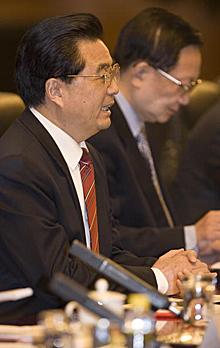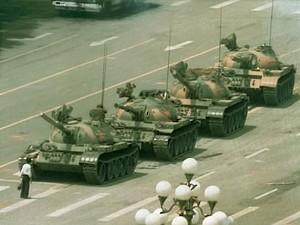The Chinese Politburo convened a meeting with expanded attendance on Nov. 10. Party secretaries from provincial, ministry, and central government committees were also present. Proposals from the Central Commission, the Chinese Communist Party 17th National Congress Preparatory Group, and the Central Organization Department were debated. The meeting was held in Zhongnanhai, Beijing, and lasted the whole day until 11 p.m.
A total of 11 proposals were considered, including an electoral procedure motion on the 17th National Congress, an electoral procedure motion on the central ministries, committees, offices and local organizations, etc. Seven proposals were dropped as a result of intense dispute and controversy involving the power and interest of the Communist Party.
Competitive Election Proposal for the 17th Bureau Members Vetoed
This proposal recommended a competitive election with 10 to 15 percent more candidates for the final Politburo Members and the alternate members. The result of the votes: five politburo members voted against it, and seven abstained. The result of the 79 votes from the central ministries, committees, and the provincial party secretaries (their votes were not counted in the formal procedure): 56 agreed, 11 disagreed, and 12 abstained.
Competitive Election Proposal for the Provincial Party Committee and Standing Committee Vetoed
This proposal recommended the competitive election for the members of the Provincial Party Committee and Standing Committee with an effective difference of 15 and 10 percent, respectively. This proposal also fueled intense dispute. Ministers and locals vetoed this proposal with a consensus in opposing the idea or with reservations about it. The result of the vote: 7 agreed, 51 disagreed, and 21 abstained. Eleven of the Bureau Members voted in favor. However, it did not pass because the requirement of two thirds of the votes was not met.
The provincial party secretary from Henan questioned whether the practice of designating secretary and governor candidates by the upper-level Party Committee and Organization Department should be continued, with competitive elections taking place for local Party Committee elections? What would happen if the designated candidates lost the election?
Dispute Over Communist Party Committee Representative Proportions in the 17th National Congress
This proposal recommended the proportion of Party representatives from different levels for the 17th National Congress, for example, no more than 60 percent of representatives from the Party members from State and government and no less than 40 percent of representatives from the Party members from grassroots organizations, rural areas, and manufacturing and production lines.
The dispute over this proposal focused on the old communist rule that the Communist Party’s leadership is maintained and demonstrated by the political quality and strength of the Party representatives. Opponents of the proposal emphasized that the impact of the representatives is profound and cannot be changed. The result of this dispute is that the 17th National Congress Members will consist of no more than 70 percent of Party leaders from State and government and no less than 30 percent of Party members from grassroots organizations, and manufacturing and production lines. Whereas representatives from the provincial levels will consist of no more than 65 percent of Party leaders, and no less than 35 percent of Party members from grassroots organization, rural ares, and manufacturing and production lines.
This result reflects the resistance of the privileged class to shift even slightly towards democracy and the measures to strengthen and reinforce the Party authority in the State politics, economics, and military and judicial power during the Party’s National Congress.
Proposal Recommends Examination Procedure for Non-Party Members to be Elected as Local Government Chief or Head of State Ministries
In fact, part of this motion was implemented when the Communist Party was just taking power in China. Even during the third National People’s Congress, a portion of the chief ministries of the State Council positions were reserved for non-Party members such as Xu Deheng, the Fisheries minister, Fu Zuoyi, the minister of Electricity and Water, Sha Qianli, Grain minister, Chiang Kuangting, the Textile Industry minister, even though all the authority held by the Party Committees. It is as Mao Zedong put it, “East, West, South, North, and Central, the Communist Party rules all.”
The motion proposed by Hu Jintao, Wen Jiabao, and Wu Yi, failed to pass.
Motion to Reveal Cadres’ Violation of the Law to the Public
This proposal recommended the Party to reveal to the public the violations and offenses by the cadres in the central and local governments, regardless of their positions and titles, except when state secrets are involved.
This motion was initially passed by the Standing Committee of the Central Commission for Discipline Inspection (CCDI) and submitted to the CPC Central Committee Political Bureau and its Standing Member Committee. This bill did not pass and voices of resistance and objection dominated during the meeting. The CCDI indicated the motion would be submitted to the 17th National Congress. This act of “pushing through” on the part of CCDI is surely supported by current leader Hu Jintao and Wen Jiabao, and reflects the complicated power struggle within the Party.
During this expanded politburo meeting, there were in total seven major rejected bills, including the five above. This shows that among and within the Chinese communist top authorities, even slight democratic reforms will be hard to pass.


